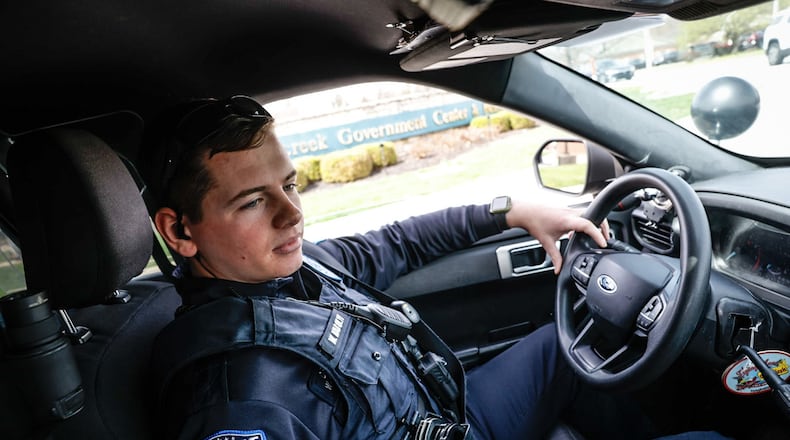The Beavercreek Police Department is authorized to have 50 police officers, an addition of only four in the last 27 years, to serve a city of nearly 47,000 residents. Beavercreek city officials have long pointed out that the growth of the police department has not kept pace with the growth of the city.
City Manager Pete Landrum said there are usually four to seven officers on duty. Factoring in leave, adding an additional five officers would essentially add one more officer to each shift.
The last time Beavercreek voters passed additional funding for the police department was in 2014.
“We’ve not asked for any additional funding for police in nine years,” said Beavercreek Mayor Bob Stone. “Everyone knows inflation is eating into everyone’s budget. We live on property tax; those revenues don’t increase based on inflation. It’s a much-needed revenue source that will also increase staffing.”
The police department’s budget is $11.8 million for 2023, according to city documents. The department is funded primarily with property taxes, which comprises $9.61 million and represents almost 92.3% of revenue.
The 2023 police budget has a $1.4 million deficit, Landrum said. Budget projections from earlier this year show that the police levy fund will have a $2.1 million deficit in 2025 if the levy doesn’t pass, according to city documents. Whether or not budget cuts are necessary would be determined in the summer, Landrum said, after the election results are in.
Contrary to the rejected 2.5-mill levy last November, if this levy passes, new funds would not be used to construct a new building for the police department.
City officials previously told the Dayton Daily News the current police station on Dayton-Xenia Road, as well as the city hall, are nearing the end of their useful life. The 11,900-square-foot police headquarters was built in 1965 and renovated in 1997. The department quickly outgrew its space, from 46 sworn officers, eight dispatchers and three support staff to 50 officers, 12 dispatchers and seven support staff today.
Beavercreek resident Harold Lewis said that while he voted against the police levy in November, he plans to support it in May.
“I’m all for it. We need additional officers,” he said. “We also need a new building, but that’s got to come down the road.”
Lewis said while the police department needs a new headquarters, the initiative proposed in November “wasn’t well defined,” and he’d like to see better plans for what the city wants to build before voting to put his money toward it.
“When you need them, you need them,” Lewis said of police.
Beavercreek resident John Mitchel, a member of Beavercreek TaxBusters, took an opposing view, saying that his time working as a program manager for the Department of Defense informs his opinion on tax issues like this one.
“To make a long story short, ‘it’s the requirement,’ " he said. “I can’t see a valid requirement to hire five new police officers. Although it would be nice to have five more men or women in blue, I don’t believe it’s necessary in Beavercreek.”
Mitchel added that the city’s golf course will be paid off in the next few years, and the money from that could go toward supporting the police department.
TaxBusters, which has historically opposed ballot measures to create a city income tax, is not formally taking a position on the property tax issue, members of the group told the Dayton Daily News.
Additional information about the police levy can be found on the city’s website, www.beavercreekohio.gov/policelevy.
About the Author

